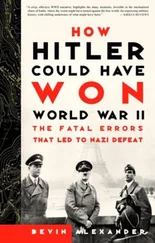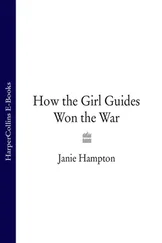The European consensus in favour of excluding the Russians as well as Germany from Versailles had been too strong for Lloyd George to resist. Even as the Paris delegates dotted the i’s and crossed the t’s of the treaty, 180,000 Allied troops drawn from Western armies were still meddling in the Russian Civil War, which had erupted following the 1917 revolution. The Allied support for the White Russians against the Bolsheviks did not lack purpose but was without a coherent strategy. In the course of twelve months the troops had managed to advance in a crablike fashion towards an obscure objective, only to be withdrawn soon after Versailles for no discernible reason except to demonstrate their lack of resolve. Thereby they not only failed to divert the leaders of the fledgling communist state from their revolutionary path but also confirmed Moscow’s deepening sense that the West was united in seeking to frustrate and, if possible, undermine the revolution by any means that might from time to time come to hand. In the years ahead, Stalin’s paranoia served merely to aggravate this well-grounded suspicion.
By the time of the Genoa Conference it was clearer than ever to Lloyd George that the two largest states on the continent could no longer be treated as outcasts. They were too big, too populous and too explosively unstable to ignore. Both pariah states would have to be brought in from the cold. Without their presence at the negotiating table, he believed it would be impossible to reconnoitre a way out of the worsening European crisis or to construct a sustainable framework for stability across the continent. Conversely – with a foresight evidently denied his fellow leaders – he feared that perpetual isolation would drive Germany and the Soviet Union to put aside their ideological differences in favour of forming a close economic and strategic partnership, which – were it to prosper – would destroy Europe’s fragile equilibrium. In the months leading up to Genoa he had therefore expended a great deal of political capital in arm-twisting the French into accepting Germany’s presence at the conference table while simultaneously overriding the repugnance of several other participants – not least Conservative members of his own rickety coalition – at the very thought of sitting alongside Bolshevik revolutionaries.
Although Moscow and Berlin were not strong enough to boycott Genoa, neither was gratified by the invitation to attend Lloyd George’s conference. They arrived in Italy with little expectation of being released from the handcuffs the Allied Powers had placed on them at Versailles. A few days earlier the prime minister had informed Chicherin that the Soviet Union would receive economic assistance only if the Kremlin agreed to repay the huge debts and loans to the West accumulated by the Czarist regime before the revolution. 7 Chicherin was a cultivated intellectual who had inherited great wealth. He had travelled widely and spoke every major European language. He had written a book about Mozart and he admired Nietzsche (though whether he was aware that Rapallo was one of the philosopher’s favourite watering holes was not known). He had also been one of Lenin’s closest confidants and a dedicated Bolshevik. He was evidently thin skinned as well and quick to sense a slight. Inadvertently, the Italians gave him an opportunity to take offence by billeting his party – along with the Germans – well away from the main conference centre in Genoa. Before his arrival, the Manchester Guardian ’s well-connected Moscow correspondent, Arthur Ransome (soon to become famous as the author of the Swallows and Amazons series of children’s books), wrote that Chicherin had formally protested that ‘the only communication with Genoa is a long road especially convenient for assassination … it may be impossible for us to go to Genoa if we have to run a daily gauntlet’. 8 His protest was ignored. If he needed proof, this was yet one more example of the West’s disdain for the Soviet Union.
Chicherin’s German counterpart, Rathenau, who had only been appointed to the post in January, was a prominent Jewish industrialist. A liberal intellectual, he was renowned for his tolerance and integrity. He was also insistent that Germany should honour the terms of the Versailles treaty, disagreeable as these were. For this, as well as for advocating dialogue with the Soviet Union, he was regarded politically as being on the extreme left. He had every bit as much justification to fear assassination as Chicherin: in the run-up to the Genoa Conference he had even written of his premonition that he might be murdered by one or another group of fanatics. Though he abhorred Bolshevism – which he mocked for seeking to impose ‘compulsory happiness’ on the Russian people – he believed that economic and political co-operation with the Soviet Union would prevent German ultra-nationalists from seizing the political agenda to demand the creation of a ‘Greater Germany’.
From the Reich’s perspective, a deal with the Kremlin also made practical sense. France had not relented in the three years following Versailles. The Quai d’Orsay, as the French foreign ministry was universally known, continued to insist that the Reich would have to pay the reparations bill in full – an intransigence which had severely constrained Lloyd George’s room for diplomatic manoeuvre. Although the British prime minister had been much influenced by the eminent economist John Maynard Keynes, who had resigned from the Treasury in protest at the ‘abhorrent and detestable’ punishment inflicted on the Reich at Versailles, he had little choice but to tell the German government that – whatever else he might conjure out of the ether – it would not be possible to negotiate any reduction in what he regarded as a crippling drain on the Reich’s exhausted Treasury.
Despite their differences, Moscow and Berlin thus had more than enough common ground to negotiate an agreement that might allow them jointly to circumvent the humiliations of Versailles and to liberate themselves from the perpetual impoverishment of isolation and debt imposed on them by the victors of the Great War. Their search for reconciliation required only that the continent’s two behemoths reopen ancient links and adapt them to fit these different times.
Before the First World War, when Austro-Hungary, the Ottomans, Russia and Germany – the Central Powers that still held sway across the continent – circled one another, making and unmaking alliances to balance their overlapping but competitive interests, the relationship between Russia and Germany had been artfully calibrated to avoid conflict. Thanks to Bismarck’s ingenuity, they had even signed a secret treaty in 1887, aptly named the Reinsurance Treaty, under which they agreed to maintain a relationship of benevolent neutrality and, under certain circumstances, to offer each other military support. Though the treaty itself collapsed with the Iron Chancellor’s dismissal three years later, cordial diplomatic relations – underpinned by family bonds and mutually advantageous economic ties – persisted until the eve of the First World War.
The 1922 Rapallo treaty was thus a revival of a Bismarckian realpolitik that required Moscow and Berlin to see beyond the bitter legacy of the First World War. Only four years earlier, in February 1918, German troops had crossed the Russian border, threatening to occupy a great swathe of a country already crippled by civil war. With this sword of Damocles hanging over him, Lenin had been forced by Berlin to sign the Treaty of Brest-Litovsk on 3 March 1918, the terms of which were every bit as harsh as those that, soon afterwards, Germany was required to accept at the Paris Peace Conference. fn2 Yet almost as soon as the Versailles treaty had been agreed neither the Reich nor the Soviet Union – in true nineteenth-century style – had qualms about opening secret talks to re-establish the pre-war economic ties that had been so valuable to both states before 1914.
Читать дальше
![Джонатан Димблби Barbarossa: How Hitler Lost the War [calibre] обложка книги](/books/385421/dzhonatan-dimblbi-barbarossa-how-hitler-lost-the-w-cover.webp)



![Traudl Junge - Hitler's Last Secretary - A Firsthand Account of Life with Hitler [aka Until the Final Hour]](/books/416681/traudl-junge-hitler-s-last-secretary-a-firsthand-thumb.webp)







